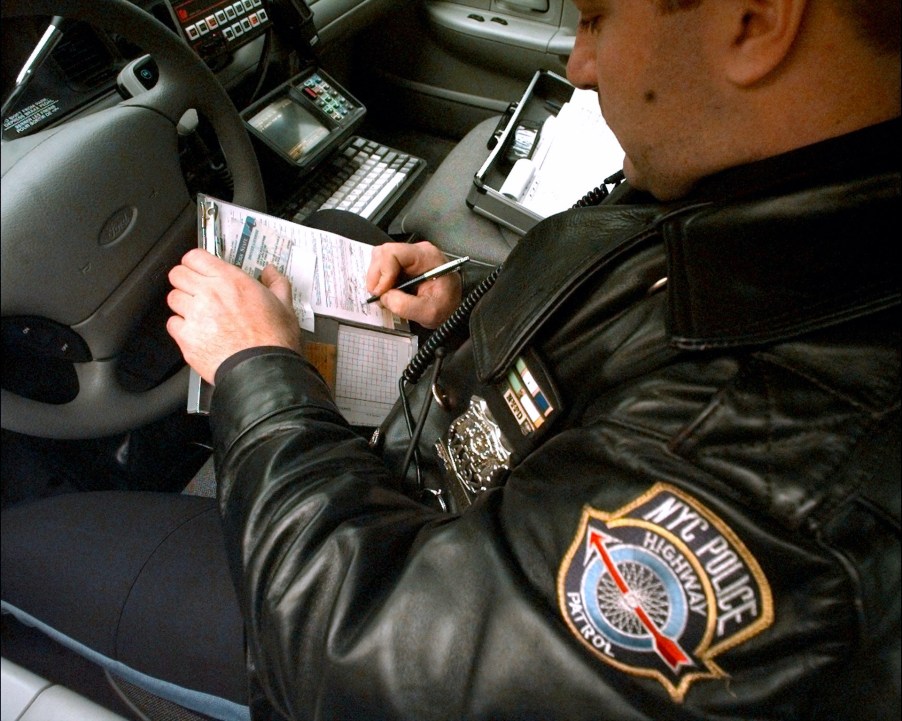
3 Reasons Why You Shouldn’t Pay Your Speeding Ticket Immediately
Nothing shocks the system quite like a set of red and blue lights in your rear-view mirror. If you couldn’t talk your way out of a citation, don’t worry, speeding tickets are quite common. However, just because you receive one doesn’t mean you should jump the gun and pay it. In most cases, paying the ticket will not only add points to your license, but it can also result in much higher insurance rates. According to NerdWallet, drivers can see a yearly insurance rate increase of up to $355 with a speeding ticket on their record.
Before we dive in, you must check your local laws before following any of the legal avenues we’re looking at today. You’ll want to do this because traffic laws vary from state to state. Additionally, make sure to check in with your local court to see which of these options are available to you.
Speeding tickets are a major source of revenue

To understand why speeding tickets are so common, we have to understand where their revenue goes. According to Governing, citations are a major source of income for states. Let’s take the state of Missouri as an example. According to Governing, in 2014, lawmakers had to place a 20 percent cap on how much of the general operating revenues could be collected from minor traffic violations. This means that before the cap, traffic violations accounted for far more than 20 percent of operating revenues. As a result, there was a real incentive to hand out a fair amount of speeding and other traffic tickets.
1. Lawyer up and you might get your speeding ticket dismissed

Now that we know where the money goes, let’s talk about your options. If you have one or more speeding tickets, the first thing you’ll want to do is contact a lawyer. According to NerdWallet, a lawyer on average will cost you between $250 and $350 depending on the fine. On average, NerdWallet claims that a speeding ticket can cost between $50 and $2,500.
While the layer fee may end up being more than the ticket fine, it’s still worth taking that option. Largely because if your ticket is dismissed, you won’t get higher insurance rates or points on your license. It is important to remember that those higher insurance rates aren’t just for one year. They can exist for several years after you’ve paid the ticket.
2. You can negotiate your fine

If you’ve decided to avoid going the lawyer route, you can actually negotiate your speeding tickets during mitigation. According to NerdWallet, you can schedule a time with the court to negotiate your fine. NerdWallet claims that courts are inclined to negotiate speeding tickets ahead of formal hearings largely because it saves them money.
If a judge decides to grant you leniency, NerdWallet reports that your ticket may be heavily discounted and even withheld from your record. While in this scenario, you’ll likely have to pay a sizable chunk of the fine, you get the added benefit of not having it affect your driving record and subsequently increase your insurance rates.
3. A driving course could get your citation waived

If you are prone to getting speeding tickets, this last option isn’t for you. That’s because, according to NerdWallet, first-time offenders could get their tickets deferred or dismissed after taking a driving course. If you’re offered the option to defer your speeding ticket, you’ll likely end up paying a reduced fine, eventually dismissing your ticket after some time.
However, the best possible outcome is the ability to attend a driving course. Don’t worry, plenty of these courses are available online for little money. According to NerdWallet, a judge may grant a first-time speeder the ability to complete a driving safety in exchange for having their ticket dismissed or points withheld. If you are a first-time offender, this is your best-case scenario, given that you likely won’t have to pay a heavy fine or have it reflect on your driving record.
Don’t want a speeding ticket? Don’t speed
It goes without saying that the absolute best way to not deal with speeding tickets is to follow your local speed limits. Like with everything mentioned above, please make sure to check your local laws and follow them thoroughly. However, if you find yourself in the unfortunate situation of dealing with one, at least now you’ve got some options.


